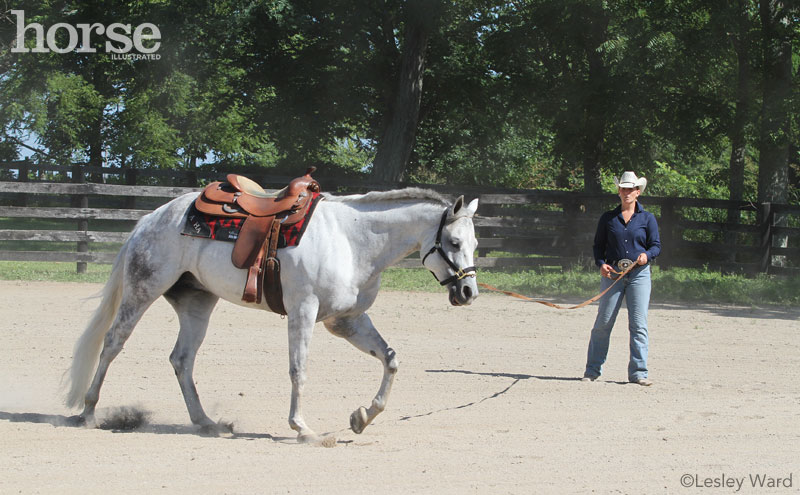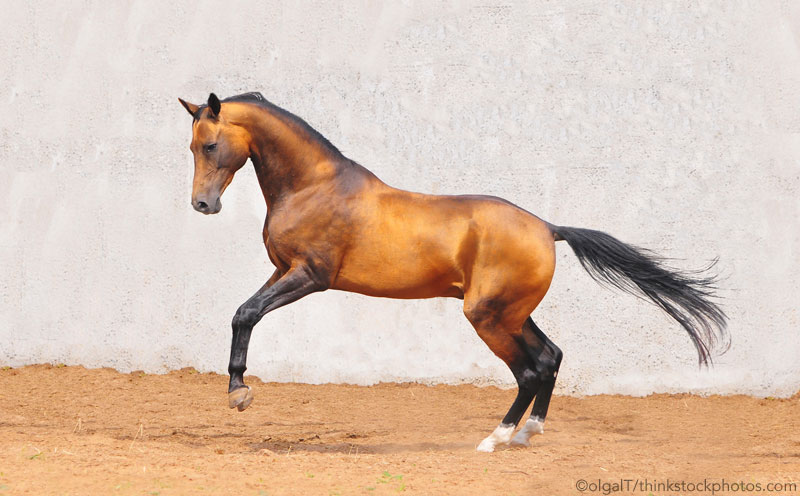
Q: Is it better to get off a misbehaving horse or keep riding so he doesn’t learn that he gets to quit when he’s being bad?
A: Whether you stay on your horse when he’s acting up is an issue of safety. What he learns as a result is irrelevant if being on his back puts you in danger. Additionally, if you’re uncertain of how to improve the situation, are frustrated with your horse’s behavior, or feel yourself becoming tense, ending the ride is a wise choice. Your horse needs you to be calm, confident, and focused whenever you’re on his back.
If you decide to dismount, continue the training session from the ground. If your horse’s problem is excessive energy, put him on a longeline or in a round pen to work off his gusto. Encourage forward movement and consistent gaits. Work your horse until he is relaxed and lowers his head and neck. Licking, chewing, blowing air through the nostrils, a soft mouth, and blinking eyes are signs that you’re making good progress.
If your horse has a problem becoming distracted when you ride, step off and reclaim his attention from the ground. Alternate between walking him and asking him to stand still for several moments. Whether he’s moving or stopped, insist that he keep his head straight and his neck low. When his attention wanders, use the leadrope to guide his head back to center, applying downward pressure if he elevates his neck. Release the pressure and offer praise when he complies. Developing focus is a process, like building a muscle. It takes patience and consistency.
When you’re back in the saddle, use rein pressure to reinforce the same boundaries: a leading rein to bring him back to center and a direct rein to flex his head until he relaxes and lowers his neck.
Every horse has an occasional bad day. Taking a break or detouring from your original plan is far better than having a session that deteriorates to the point of being detrimental to you or your horse. However, you could inadvertently create a habitual pattern of unwanted behavior; take steps to reduce the odds of ending a ride prematurely. Horses are smart and can make connections between cause and effect. Use groundwork to make sure your horse is in a willing and relaxed state of mind before you get on. Work within your comfort zone and your horse’s, too. Make every ride a positive experience that leaves you both eagerly looking forward to the next time.
DALE RUDIN is a CHA-certified riding instructor and clinician with a mindful and balanced approach to horsemanship and riding. www.un-naturalhorsemanship.com
This article originally appeared in the May 2015 issue of Horse Illustrated magazine. Click here to subscribe!



